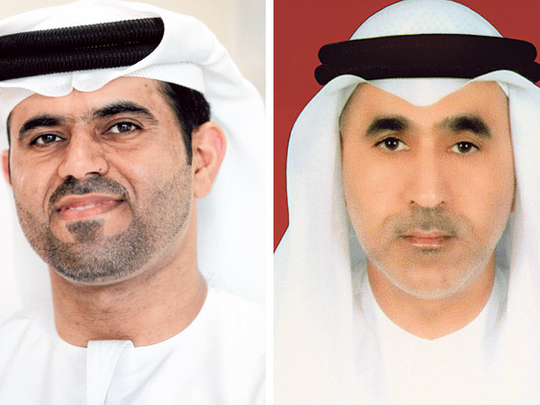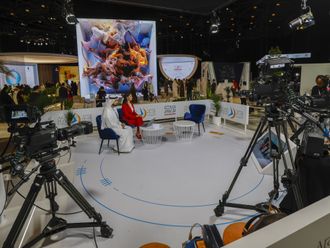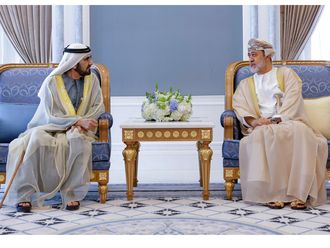
Abu Dhabi: The chronic power shortages in the Northern Emirates, especially in Fujairah, will be raised at the Federal National Council (FNC) session tomorrow.
"Poor planning has left many buildings, owned by Emiratis, burdened with debt and service without electricity for years," Dr Sultan Al Moadhen, a member from Fujairah, told Gulf News yesterday.
Dr Al Moadhen, who will be quizzing the Minister of Energy, Mohammad Al Hamili, who is also the chairman of the Federal Electricity and Water Authority (Fewa), laid blame for the shortage in Fujairah and other Northern Emirates on Fewa's poor planning and lack of coordination with civic authorities.
Dr Al Moadhen said Fewa has hooked up only 20 to 30 per cent of commercial buildings to the federal power grid.
Ajman, Fujairah, Ras Al Khaimah and Umm Al Quwain, known as the Northern Emirates, lack their own electricity and water authorities and are dependent on federal supplies.
Power shortage will be brought under control within two years, the Minister of Energy told the House in early January.
All the applications for power subscription will be met within two years, Al Hamili told the FNC. "The federal body would be able to meet the deadline because Abu Dhabi would continue feeding electricity into the federal grid and because Fewa was expanding the electricity network," he said.
"Owners of [commercial] buildings have been waiting years for electricity, while certain businesses and other people with connections to the government were hooked up to the power grid," Dr Al Moadhen said, citing the instance of a former minister and a big businessman in Fujairah.
The FNC representative said many building owners have been forced to resort to noisy, expensive and environmentally unfriendly petrol-powered generators in their buildings.
At least 900 houses and commercial buildings in the Northern Emirates have no access to electricity, a report by an ad hoc committee presented in January to the FNC said. None of the hundreds of houses and commercial buildings visited by the committee had been supplied with electricity for years despite meeting Fewa's requirements and paying fees, the report said.
Lack of planning
According to Dr Al Moadhen, there was no problem in villas, but the majority of businesses opened in the past few years have lost huge amounts of money because they could not use their buildings. The FNC report said Fewa was completely unable to provide power.
Al Hamili attributed the problems to a lack of urban planning by local authorities, who approved scores of multibillion-dirham projects before ensuring there would be enough electricity. He said that since 2006 the demand for electricity in the Northern Emirates had been rising as much as 25 per cent a year, an expansion far beyond Fewa's plans to provide for a 7 per cent increase in power demand.
Al Hamili told the House the municipalities have no master plans, carry out projects and ask Fewa for electricity and "sometimes we can't connect them to the grid because the area would be already suffering from electricity cuts".
But Dr Al Moadhen said he believes Fewa should coordinate with local authorities so that "problems are addressed and solutions found".
Al Hamili said Fewa had signed an agreement with Abu Dhabi Future Energy Company to supply the federal grid with electricity from renewable sources. "Fewa would also benefit from the UAE's nuclear energy programme, which will start generating power in 2017. Abu Dhabi hired a consortium of Korean companies last month to build four nuclear reactors. The first reactor is expected to generate 3,000 megawatts."
According to the FNC report, the Abu Dhabi government had supplied the federal grid with electricity and power station fuels worth Dh26 billion between 1990 and 2008.
Mohammad Abdullah Al Za'abi, a representative from Sharjah, will pose a question to Dr Anwar Mohammad Gargash, Minister of State For FNC Affairs, about regulations for endowment funds.
His Highness Shaikh Mohammad Bin Rashid Al Maktoum, Vice-President and Prime Minister of the UAE and Ruler of Dubai, had issued in May a decree regulating the endowment sector's (Waqf) income and expenses in compliance with Sharia laws.
The move reflects the attention the country gives to the endowment sector and its keenness to regulate this sector in compliance with legal and Sharia laws.
Al Za'abi said his question is aimed at finding appropriate mechanisms to preserve charity endowment funds and ensure that they are spent properly and invested in compliance with Sharia regulations.
Budget debate
The Federal National Council (FNC) will debate two laws on the Federal Budget for 2011 and public debt management.
The House reviews draft federal laws before they are sent to the UAE Cabinet for approval before being signed into a law by President His Highness Shaikh Khalifa Bin Zayed Al Nahyan..
Members of the chamber are of the view that cut of federal budget should not affect necessary services.












